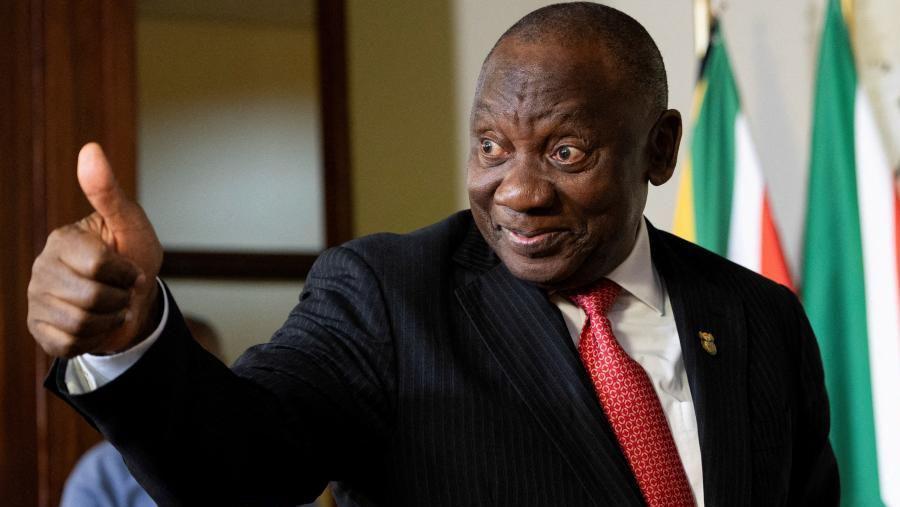South African prosecutors have decided not to pursue criminal charges against President Cyril Ramaphosa concerning a significant controversy known as the “farm theft scandal.” This decision comes after a former spy chief, Arthur Fraser, lodged a criminal complaint against Ramaphosa. He accused the president of attempting to cover up the theft of $4 million in cash from his Phala Phala game farm, located in the Limpopo province. Ramaphosa has firmly denied any wrongdoing, asserting that the funds in question were obtained through legitimate sales of buffaloes from his farm, and he reported the burglary to the authorities.
The investigation that led to the decision by the National Prosecuting Authority (NPA) took into account extensive evidence gathered by the Directorate for Priority Crime Investigation (DPCI). The NPA’s Director of Public Prosecutions in Limpopo, Ivy Thenga, emphasized that the available evidence was insufficient to support any charges against Ramaphosa. This conclusion followed a thorough examination of potential criminal activities related to money laundering, tax evasion, and foreign exchange violations. The prosecutors stated that the integrity of the evidence fell short of sustaining any legal action against the president.
Despite the turmoil sparked by the burglary, where cash was allegedly hidden in Ramaphosa’s couch, he was re-elected as president in June 2022. Though he faced significant challenges, including an impeachment motion initiated by his opponents within the African National Congress (ANC), he managed to maintain his leadership stature. The ANC utilized its parliamentary majority to block the impeachment efforts, and the anti-corruption watchdog subsequently exonerated Ramaphosa, despite public calls for his resignation during the protracted investigations.
Fraser’s allegations against Ramaphosa not only included attempts to conceal the theft but also claims related to orchestrating the kidnapping of the alleged robbers to silence them. These serious accusations painted a picture of a leader potentially involved in unlawful conduct; however, the NPA’s investigation concluded that there was a lack of evidence to substantiate such claims. The former spy chief’s assertions added to the public intrigue surrounding the case, though the legal outcomes did not reflect the severity of the allegations.
The high-profile nature of the scandal had implications for Ramaphosa’s administration, particularly as it coincided with vital party leadership elections. The chaos surrounding the farm theft challenged his political stability, but ultimately, the results indicated a lack of actionable evidence that could impact his presidency directly. Ramaphosa, acknowledging the breach of security at his farm, underscored that the money involved was derived from legitimate business operations, and he maintained that his actions were above board.
While the investigation may have cleared Ramaphosa of personal criminal liability, the case against three individuals accused of breaking into his property continues. These suspects are facing several charges, including money laundering and house-breaking, and are expected to appear in court again. The ongoing legal proceedings related to the burglary reflect the complexities of the case, as the NPA moves forward in addressing the actions of those directly involved in the crime at Ramaphosa’s Phala Phala farm. Despite being absolved of wrongdoing, Ramaphosa’s administration remains under scrutiny as he continues to navigate the political fallout from this controversial incident.

